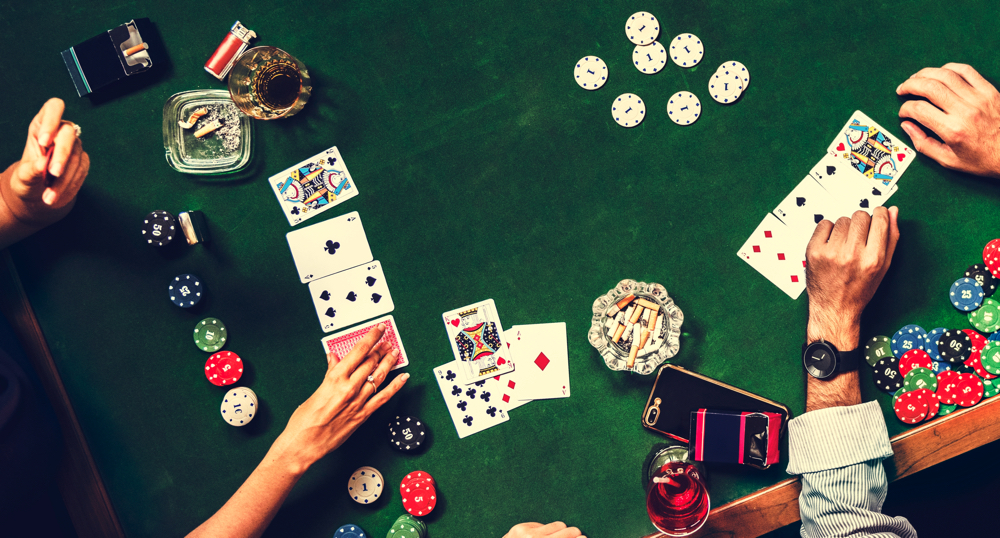
24 Nov Gambling Seniors

Jan Fowler
is author of the best-selling book, “Hot Chocolate for Seniors”(winner of national & international awards); winner of Gold Halo Award from the So. California Motion Picture Council for Outstanding Literary Achievement; winner of First Place Excellence in Journalism Award (SPJ –Southern CA); Town & Gown “Phenomenal Woman” Award; former television host & KSPA radio host of “Senior Living at its Best with Jan Fowler”; speaker, contributing author for “Savvy Women Revving Up for Success”; founder of Starburst Inspirations, Inc. 501(c) (3) nonprofit which supports Redlands Drug Court. www.janfowler.com. Jan welcomes feedback and comments about her columns and invites you to leave her a message on her website.
Gambling Seniors
He’s a charming, witty, dapper man who radiates good cheer everywhere he goes, so it’s no wonder he’s in frequent demand as a speaker—both nationally and abroad. He holds a Ph.D. in clinical psychology, is one of thirty worldwide professionals with a specialty in addictions, and at age 87, maintains a full professorship in the Department of Psychiatry and Behavioral Sciences at Loma Linda University Medical School in California.
Yes, Durand (“Dewey”) Jacobs is most definitely a Senior with Sizzle! So much sizzle, in fact, that he persuaded me to write on this topic because of what he feels is a compelling need to promote public awareness.
It’s a seldom-talked-about problem. Although we read and hear about various forms of addiction almost daily, there seems to be little or no coverage about the hidden secret addictive habit crippling the lives of countless senior citizens. Gambling! “Casinos across the country are a sea of gray because older adults are particularly vulnerable,” states Jacobs, referring to seniors who are hooked on gambling, especially elderly women, who suffer loneliness the most as wives tend to outlive husbands.
Three to five percent of adults will experience a gambling problem serious enough to devastate every aspect of the gambler’s life, with such negative effects as debt, job losses, family disruption, illegal activity or suicide. Some even sell 401(k)s and deplete other assets in order to support their gambling.
Casinos are exciting and friendly places to visit, especially for those who are lonely, bored or depressed, as are many retirees who are either widowed or no longer have children at home. The desire to fill time makes the elderly vulnerable. Whereas some casinos send buses to pick them up and bring them out for some welcome escape and diversion, others aggressively market older adults, using them to fill slow midweek, midday time slots. Still others offer incentives such as low-cost hotel rooms, free meals, and bus service. But when the bus doesn’t board for home until 6:45 p.m., what else is there to do except gamble?
Often retirees who are seeking to fill a void precipitated by loss of former friendship circles, death of a spouse, isolated living, and increasing health problems become late-onset “escape gamblers.” Jacobs calls their episodes “vacations from life.”
“A lot of people drink, a lot of people gamble, a lot of people indulge in food excesses, but very few become addicted,” explains Jacobs. “What makes the difference? You have to be predisposed to become an addict. Just doing it is not enough, even doing it a lot is not enough. An example is Vietnam soldiers who returned home as heroin addicts, then simply stopped using heroin once they returned to their home communities.”
According to Jacobs’ widely-recognized General Theory of Addictions, predisposing influences which place individuals at high-risk for addictive behaviors are biological and psychological. The biological predisposing condition is an abnormal resting arousal state which either requires stimulation or relief from tension. Predisposing factors of a psychological nature include early childhood trauma, abandonment, emotional neglect, physical or sexual assault. A person’s potential for addiction will remain latent until such time as when he is pressured with environmental stresses and then, by chance, discovers an escape “vehicle” such as food, alcohol, drugs, gambling, etc.
The American Psychiatric Association defines pathological gambling as a “disorder of impulse control” which can be chronic and progressive, but which is treatable. Terms such as “pathological” and “problem” gambling are used interchangeably with “compulsive” and “disordered” gambling.
There are three phases of gambling addictions: The winning phase, which brings the initial rush of excitement leading to preoccupation with gambling and unrealistic optimism about future winnings. The losing phase, which causes the gambler to become preoccupied with getting back, or “chasing his losses,” even if it means borrowing money. And finally, the desperation phase, in which he lies to family and friends about the extent of the losses.
What is not known is that retirement ‘nest eggs’, equity in property, or funds earmarked for a grandchild’s inheritance frequently disappear in order to support gambling debts. Experts say that seniors with gambling problems are less likely to admit their habit and losses and seek out professional help due to shame and embarrassment.
There is hope, however, and there is help. Numerous resources and recovery treatment programs are dedicated to assisting gamblers and their families.
So if you’re concerned about yourself or a loved one, Jacobs recommends that you contact the following primary resource: California Council of Problem Gambling, located in Palm Springs, at (760) 320-0234. They will then make the appropriate referral based upon your individual needs and concrns.
TIP: Vitamin D is considered one of the most powerful anticancer nutrients. Even if you only get 15 minutes of midday summer sunshine on bare arms and face (no sunscreen) the body will stockpile enough Vitamin D in the liver to last until the end of the year ~ also available in a supplement.
Gambling Seniors
He’s a charming, witty, dapper man who radiates good cheer everywhere he goes, so it’s no wonder he’s in frequent demand as a speaker—both nationally and abroad. He holds a Ph.D. in clinical psychology, is one of thirty worldwide professionals with a specialty in addictions, and at age 87, maintains a full professorship in the Department of Psychiatry and Behavioral Sciences at Loma Linda University Medical School in California.
Yes, Durand (“Dewey”) Jacobs is most definitely a Senior with Sizzle! So much sizzle, in fact, that he persuaded me to write on this topic because of what he feels is a compelling need to promote public awareness.
It’s a seldom-talked-about problem. Although we read and hear about various forms of addiction almost daily, there seems to be little or no coverage about the hidden secret addictive habit crippling the lives of countless senior citizens. Gambling! “Casinos across the country are a sea of gray because older adults are particularly vulnerable,” states Jacobs, referring to seniors who are hooked on gambling, especially elderly women, who suffer loneliness the most as wives tend to outlive husbands.
Three to five percent of adults will experience a gambling problem serious enough to devastate every aspect of the gambler’s life, with such negative effects as debt, job losses, family disruption, illegal activity or suicide. Some even sell 401(k)s and deplete other assets in order to support their gambling.
Casinos are exciting and friendly places to visit, especially for those who are lonely, bored or depressed, as are many retirees who are either widowed or no longer have children at home. The desire to fill time makes the elderly vulnerable. Whereas some casinos send buses to pick them up and bring them out for some welcome escape and diversion, others aggressively market older adults, using them to fill slow midweek, midday time slots. Still others offer incentives such as low-cost hotel rooms, free meals, and bus service. But when the bus doesn’t board for home until 6:45 p.m., what else is there to do except gamble?
Often retirees who are seeking to fill a void precipitated by loss of former friendship circles, death of a spouse, isolated living, and increasing health problems become late-onset “escape gamblers.” Jacobs calls their episodes “vacations from life.”
“A lot of people drink, a lot of people gamble, a lot of people indulge in food excesses, but very few become addicted,” explains Jacobs. “What makes the difference? You have to be predisposed to become an addict. Just doing it is not enough, even doing it a lot is not enough. An example is Vietnam soldiers who returned home as heroin addicts, then simply stopped using heroin once they returned to their home communities.”
According to Jacobs’ widely-recognized General Theory of Addictions, predisposing influences which place individuals at high-risk for addictive behaviors are biological and psychological. The biological predisposing condition is an abnormal resting arousal state which either requires stimulation or relief from tension. Predisposing factors of a psychological nature include early childhood trauma, abandonment, emotional neglect, physical or sexual assault. A person’s potential for addiction will remain latent until such time as when he is pressured with environmental stresses and then, by chance, discovers an escape “vehicle” such as food, alcohol, drugs, gambling, etc.
The American Psychiatric Association defines pathological gambling as a “disorder of impulse control” which can be chronic and progressive, but which is treatable. Terms such as “pathological” and “problem” gambling are used interchangeably with “compulsive” and “disordered” gambling.
There are three phases of gambling addictions: The winning phase, which brings the initial rush of excitement leading to preoccupation with gambling and unrealistic optimism about future winnings. The losing phase, which causes the gambler to become preoccupied with getting back, or “chasing his losses,” even if it means borrowing money. And finally, the desperation phase, in which he lies to family and friends about the extent of the losses.
What is not known is that retirement ‘nest eggs’, equity in property, or funds earmarked for a grandchild’s inheritance frequently disappear in order to support gambling debts. Experts say that seniors with gambling problems are less likely to admit their habit and losses and seek out professional help due to shame and embarrassment.
There is hope, however, and there is help. Numerous resources and recovery treatment programs are dedicated to assisting gamblers and their families.
So if you’re concerned about yourself or a loved one, Jacobs recommends that you contact the following primary resource: California Council of Problem Gambling, located in Palm Springs, at (760) 320-0234. They will then make the appropriate referral based upon your individual needs and concrns.
TIP: Vitamin D is considered one of the most powerful anticancer nutrients. Even if you only get 15 minutes of midday summer sunshine on bare arms and face (no sunscreen) the body will stockpile enough Vitamin D in the liver to last until the end of the year ~ also available in a supplement.




Sorry, the comment form is closed at this time.